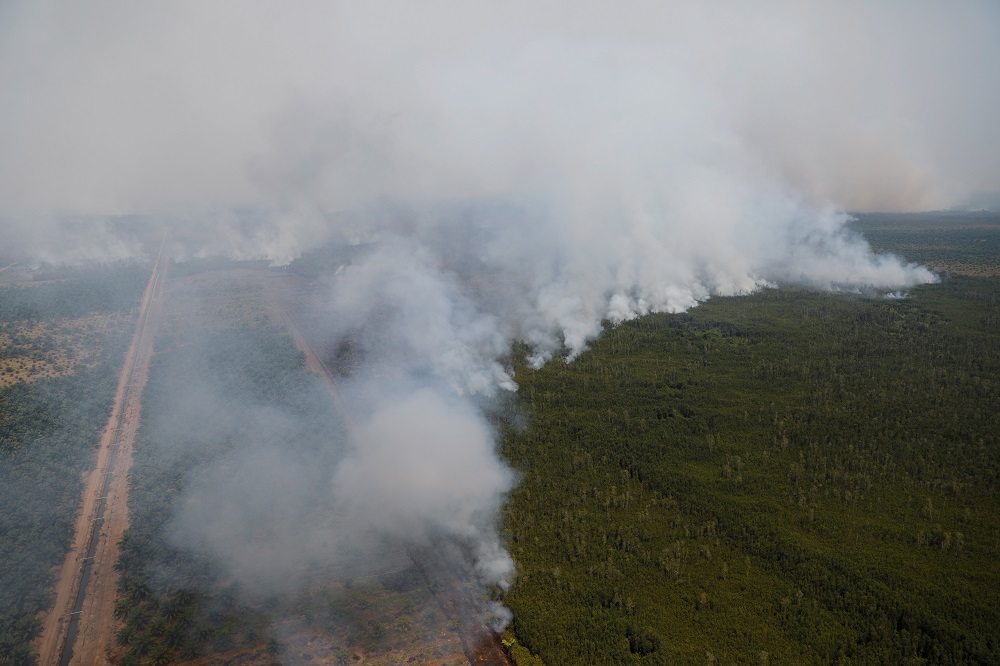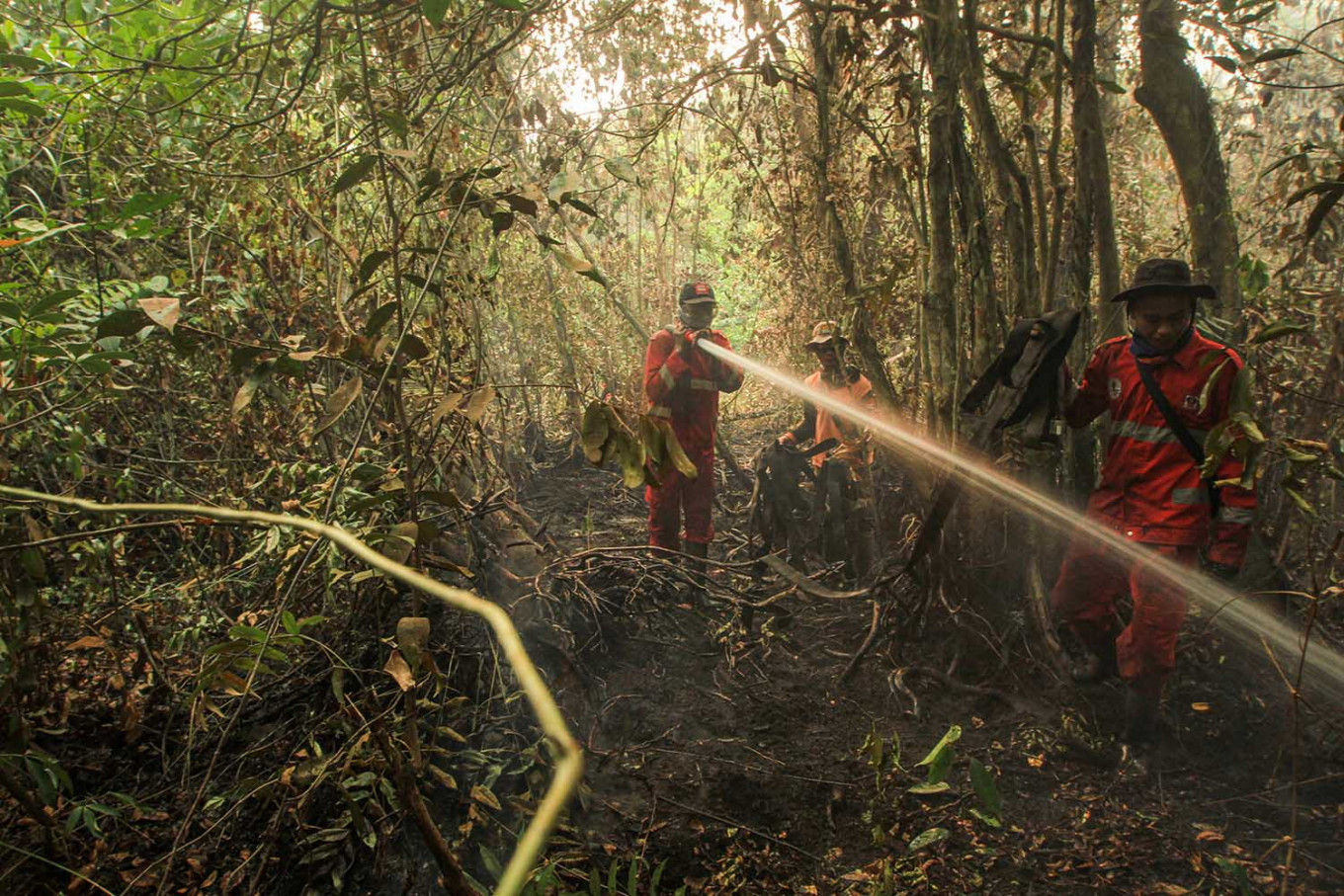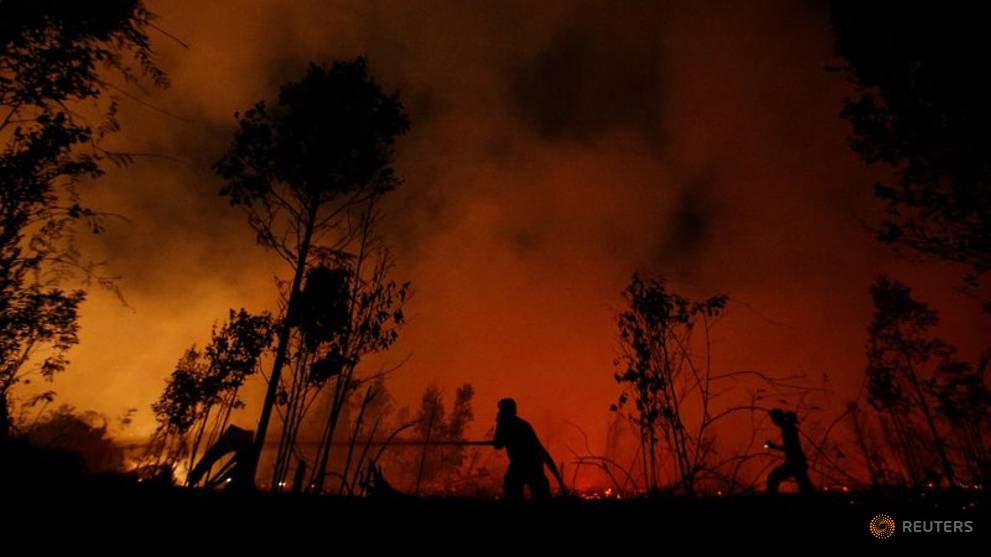3 Indonesian Provinces Declare State Of Emergency After Detection Of Forest Fires
Central Kalimantan alone has detected 700 forest fires in the province.
Three provinces in Indonesia have declared a state of emergency after forest fires were detected ahead of the nation's annual dry season
According to Reuters, Central Kalimantan declared a state of emergency since 1 July after identifying more than 700 fires in its province.
Meanwhile, The Jakarta Post reported that forest and land fires were seen ravaging in the provinces of Riau and South Sumatra since Sunday, 28 June, which led to the issuing of the emergency alert status.
Indonesia's Meteorology, Climatology, and Geophysics Agency (BMKG) already previously predicted that some fire-prone regions in Kalimantan and Sumatra would face the peak of the dry season between July and August, while the rest of the country would only see the season's later peak in August.
Smoke covering trees during a forest fire next to a palm plantation in Palangka Raya, Central Kalimantan province last year.
Image via Reuters/Malay MailCentral Kalimantan said the state of emergency in the province will run until 28 September
The level of emergency is at the first 'alert' stage which calls for increased patrols and early extinguishing efforts.
"Efforts to mitigate forest fires are underway because almost every region in Central Kalimantan entered the dry season in July," said Alpius Patanan, an official with the province's disaster mitigation agency.
Meanwhile in Riau and South Sumatra, it was not stated how long the state of emergency will last.
Authorities and private companies have managed to put out some fires after two days by deploying five helicopters and dozens of personnel. However, firefighters are still working to cool down the peat to prevent another fire from breaking out at the surface.
Firefighters fighting a peatland forest fire in South Sumatra on 23 September 2019.
Image via AFP/The Jakarta PostUnfortunately, the declarations come as Indonesia's environment ministry cut budgets and scaled back protection of their forests due to the economic impact of the coronavirus pandemic
Kiki Taufik, head of the Greenpeace forests campaign in Indonesia, said the budget cuts could result in more dangerous fires and communities left to fight them on their own.
"Fire hotspots could potentially be bigger and spread to remote peatland areas, especially in the burned areas from 2019 that are not yet restored," he added.
"And the haze could be potentially thicker or similar to last year."
Firefighters trying to extinguish forest fires in Palangka Raya, Central Kalimantan province on 14 September 2019.
Image via Reuters/CNAEvery year, forest fires occur in Indonesia due to the slash-and-burn practices that are used to clear areas for palm oil cultivation
As the world's largest producer of palm oil, environmentalists say Indonesia's palm oil industry is one of the leading drivers of deforestation in the world.
Last year's fires alone damaged and burnt over 1.6 million hectares of forest and peatland.


